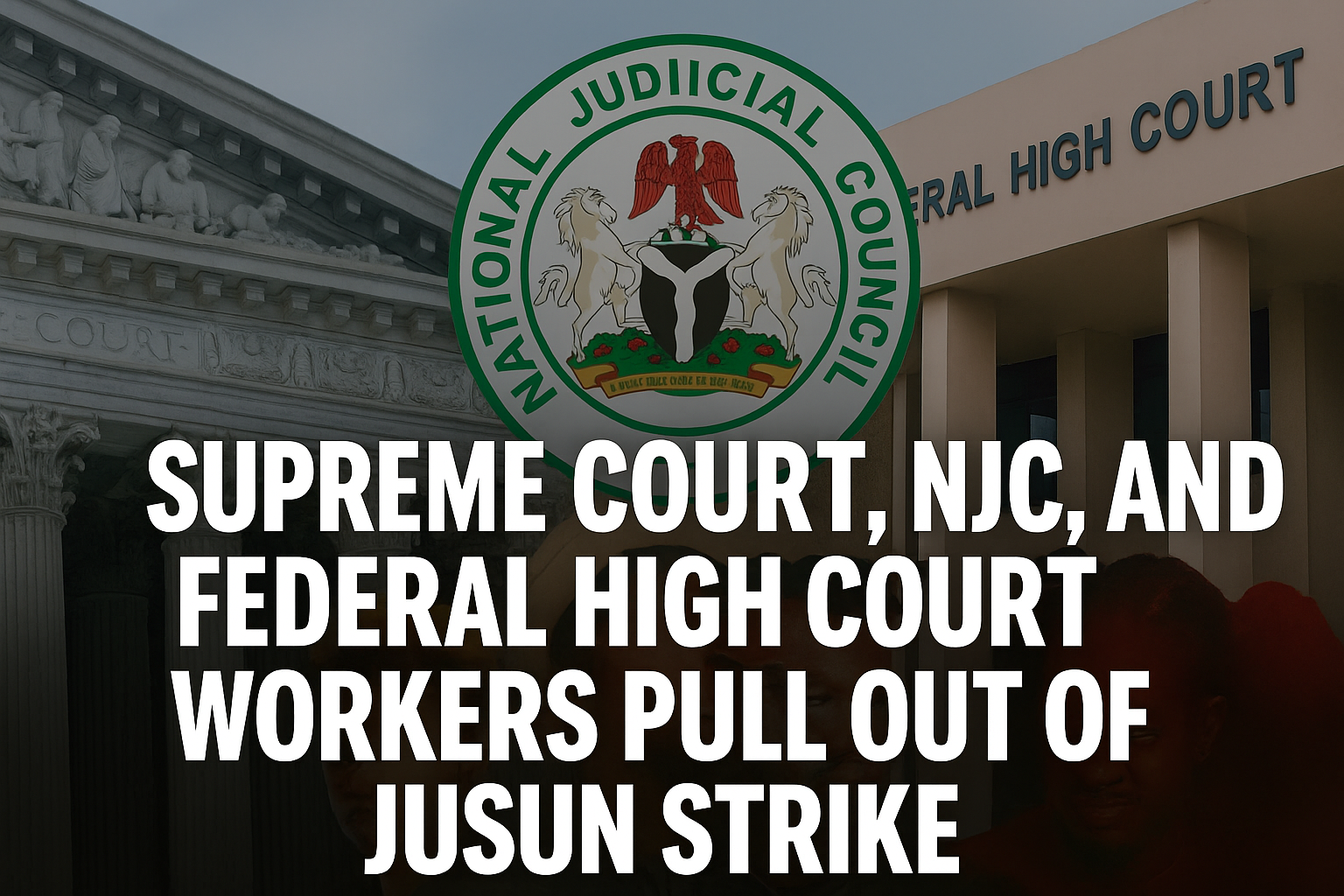Supreme Court, NJC, and Federal High Court Workers Withdraw from Ongoing JUSUN Strike
In a surprising turn of events, three major arms of Nigeria’s federal judiciary—the Supreme Court, the National Judicial Council (NJC), and the Federal High Court—have opted out of the nationwide strike declared by the Judiciary Staff Union of Nigeria (JUSUN), which began on June 2, 2025. This development has introduced a new dimension to the ongoing push for improved welfare and financial autonomy in the judiciary.
JUSUN had called for an indefinite nationwide strike to demand the payment of five months’ wage award arrears, the implementation of the proposed ₦70,000 national minimum wage, and the enforcement of a 25–35% salary increase for judiciary workers. The union, known for championing judicial independence and workers’ rights, had directed its members across the country to down tools until the federal government addressed their concerns.
However, just hours before the strike commenced, key chapters of JUSUN at the federal level made it clear they would not be joining the industrial action. The Supreme Court chapter cited “cogent and verifiable assurances” received from the Chief Justice of Nigeria (CJN), Justice Kudirat Kekere-Ekun, who had reportedly intervened in the matter and taken it up with the Presidency. In a circular to its members, the chapter stated that going ahead with the strike would “undermine ongoing negotiations and the efforts of the CJN.”
Similarly, the NJC chapter of JUSUN issued a statement announcing a two-week grace period to allow the authorities to address the issues raised. The chapter’s leadership explained that this decision followed meetings between JUSUN representatives and key stakeholders, including the Minister of Labour, during which commitments were made to ensure the release of statutory allocations to the judiciary in accordance with the 2025 Appropriation Act.
The Federal High Court JUSUN chapter also distanced itself from the strike, explaining that an earlier notice of participation was issued prematurely and without proper communication from the national body. The chapter resolved to suspend strike action until further directives were issued, highlighting the need for coordinated efforts in addressing the union’s demands.
These withdrawals have effectively diluted the impact of the strike at the federal level, leaving participation largely in the hands of state-level judiciary workers. The split also reveals underlying tensions within JUSUN over strategy and communication, with some members favoring continued engagement with government actors over confrontation.
Observers say this partial withdrawal could either pave the way for meaningful negotiations or weaken JUSUN’s bargaining power. If the federal chapters’ faith in the CJN’s intervention yields results, it may set a precedent for resolving future disputes without resorting to strikes. On the other hand, if the promises made during negotiations are not fulfilled, the union may face renewed pressure to resume full-scale industrial action.
As it stands, the situation remains fluid. While courts under the Supreme Court, NJC, and Federal High Court are expected to continue operations, many state courts are shut, causing delays in legal proceedings nationwide. All eyes are now on the government’s next move and whether it will act swiftly to resolve the outstanding issues and avert a wider judicial crisis.
If you enjoyed this article, click here to read more informative posts, also check us out on Instagram for fun and engaging content.
Disclaimer: The opinions, views, and information expressed in this article are those of the author and do not necessarily reflect the official policy, position, or views of iNaijanow. The company assumes no liability for any errors, omissions, or damages arising from the use of this information.
















